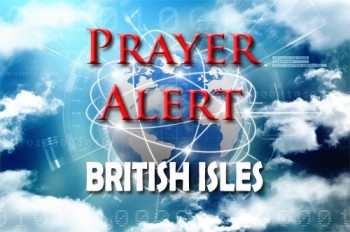Displaying items by tag: reparations
Incoming Archbishop defends £100m slavery reparations fund
The incoming Archbishop of Canterbury, Sarah Mullally, has defended the CofE’s £100 million slavery reparations fund amid growing political and internal opposition. Writing to MPs and peers calling for the plan to be scrapped, she said the Church must address its historic links to African chattel slavery with honesty, responsibility, and Christian integrity. The fund is intended to provide seed funding for community projects and enterprises serving those affected by the legacy of slavery. Critics, including several Conservative MPs, argue the money should instead support parish ministry, church buildings, and historic records, warning of legal and financial risks. Dame Sarah responded that the initiative does not reduce parish funding, noting that £1.6 billion has been committed to parishes over the next three years. However, polling suggests significant concern among churchgoers, with many saying parish ministry should take priority and warning they may redirect giving if the fund proceeds.
Commonwealth leaders to challenge UK on slavery reparations
Commonwealth leaders are preparing to challenge the UK on the issue of slavery reparations at their upcoming summit, despite Downing Street's insistence that reparatory justice is not on the official agenda. Diplomatic sources say that Commonwealth officials are negotiating an agreement to begin meaningful conversations about reparations for the transatlantic slave trade. This could leave the UK facing significant financial reparations, with some estimates suggesting it owes over £18 trillion to Caribbean nations alone. Frederick Mitchell, foreign minister of the Bahamas, emphasised the need for an apology and acknowledged that reparations go beyond money, highlighting the importance of respect and recognition of past wrongs. Caribbean leaders have intensified their calls for reparations, but the UK government maintains its position against paying them, focusing instead on present-day challenges, such as climate change. King Charles has expressed regret over colonial wrongdoings but stopped short of an apology. The issue is expected to become a central focus at the next Commonwealth summit in 2026.
Sweden told to apologise for mistreating ethnic minority
A ‘truth and reconciliation’ commission has recommended an official apology and reparations for historic injustices against the Tornedalian minority. The commission found that assimilation policies in the 19th and 20th centuries damaged them, affecting their language, culture, and traditional industries. Tornedalians, originally from the Torne River valley near the Finnish border, are descendants of Finns who settled in the area in the 1800s. They speak Meänkieli, a language closely related to Finnish. In the 1880s, Sweden enforced a policy of 'Swedishisation', including banning their language and traditional clothing in schools and sending thousands of children to boarding schools to enforce Swedish language use. Today’s Tornedalian population is about 50,000; they rely on agriculture, hunting, fishing, and reindeer herding, Although they were recognised as a national minority in 2000, with Meänkieli as an official language, the commission suggests further measures to strengthen their language and culture, including its inclusion in public broadcasting and education. This report coincides with another ongoing investigation into policies against the indigenous Sámi people: see


